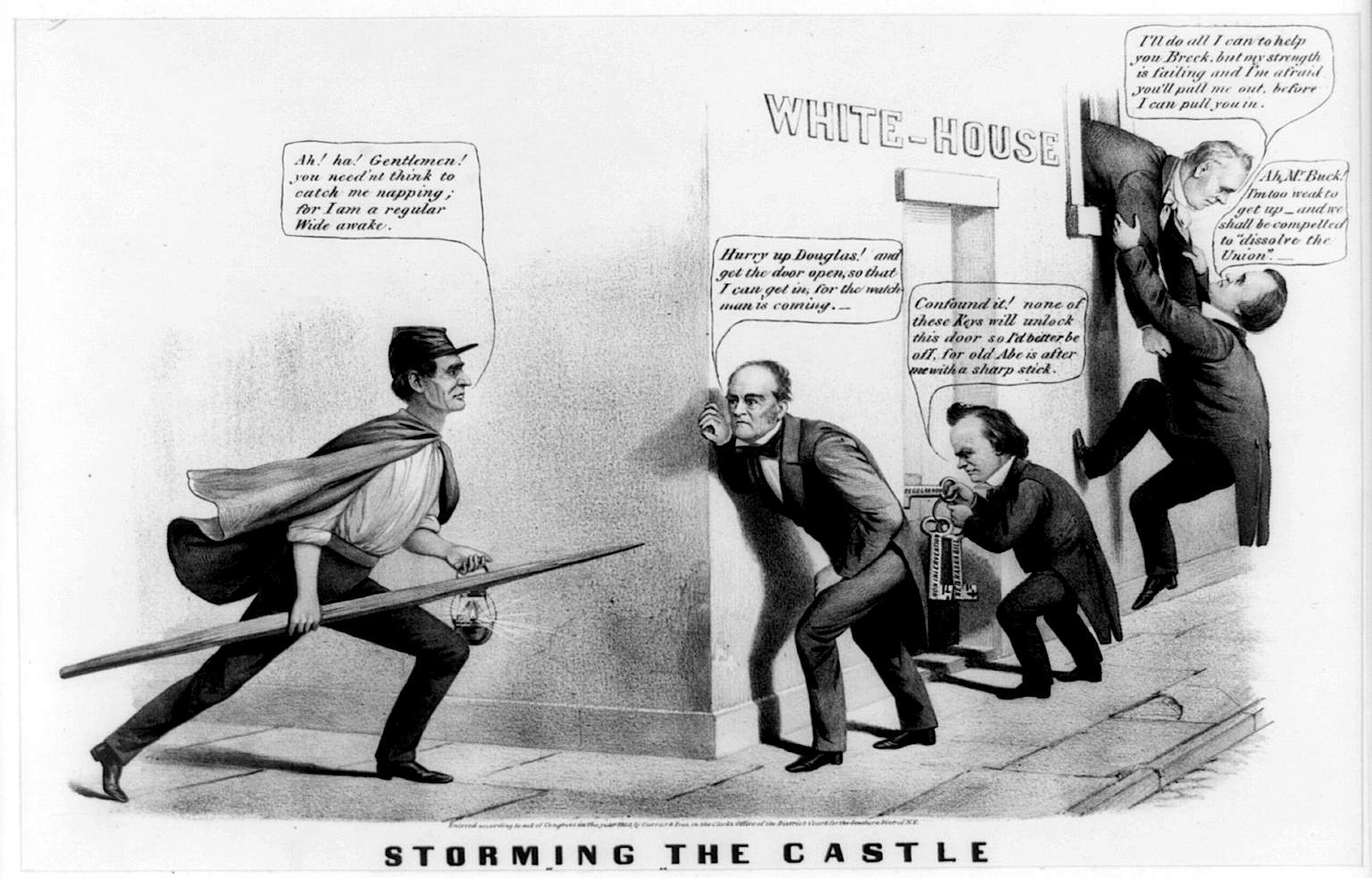 |
| My wife and I beside French Creek at Hopewell Furnace National Historic Site, June 2013 (Tintype by Jim Pfeiffer) |
This year, we are planning to return to Hopewell Furnace National Historic Site on May 16-18, 2014, in Elverson, Pennsylvania (~20 miles east of New Holland). The theme of the event is "Enduring the Storm: Hopewell 1864," which excites me as an opportunity to research how Northern communities fared in 1864 -- a time of the war that I've read much less about in newspapers. So, I recently had the Daily Evening Express microfilm sent out to Pittsburgh to do some research. I scanned the editions of the newspaper covering May 16-18, 1864, to share with other reenactors and to spark ideas about what to interpret at the event. Here are links to the PDFs:
Going over these newspapers, a few themes emerge that might be worthwhile pursuing as topics to research further and possibly incorporate into the event:
- Emancipation as a moral imperative. Instead of talking about emancipation as a military necessity, the possibility of an antislavery amendment brought moral arguments against slavery into pages of the Daily Evening Express, a Republican newspaper. The Express ran an essay entitled "The Demon of Slavery" by Henry Ward Beecher on its front page, and editorialized that the war's objective was now "the merciless mandated, 'Slavery must die!'" Among Lancaster's mainstream Republican community, emancipation was pretty much an afterthought in the rush to war, and then really came up in the context of confusing policy situations in which military found itself in 1862. By 1864, we see that ending slavery went hand-in-hand with winning the war.
- Details from the Battles of Wilderness and Spotsylvania. Initial reports had indicated a victory with heavy losses in these first meetings between Grant and Lee, with more clashes expected. More local news -- casualty lists from the Lancaster companies and accounts of the Pennsylvania Reserves in battle -- began to trickle in a couple days after the national news. The five Pennsylvania Reserves companies or two 45th Pennsylvania companies suffered moderate casualties.
- Soldiers fairs. News about local soldiers fairs and support for an upcoming fair in Philadelphia filled newspapers for much of the first half of 1864. In addition to raising the morale of and materially aiding local soldiers, they seem to have served to re-energize the Northern populace and provided a welcome distraction as the war dragged on.
- Inflation and prices. Trade organizations for hotel keepers and shoemakers made attempts to publish suggested prices as the war raised prices of materials.
- Veterans home on furlough. Most had already come home and were back in the field, but a few had their furlough in May. Company G, 9th Pennsylvania Cavalry, was home during this time. Sadly, one of its veterans was killed when jumping off a train at Elizabethtown.
- Administration of veterans' bounties. Veterans who reenlisted were promised bounties from municipalities (that received credit for their reenlistment against their draft quota). Families were slow to receive that money, much to the indignation of soldiers who wrote letters of protest.
- Preparing for the election of 1864. Newspaper editors talked about the Virginia campaigns and military strategy in the context of campaign strategy. The Union Party (Lincoln's party) would have its convention in the first week of June. With its editorial, "The President and the War," the Express made clear its unwavering support for Lincoln saying, "The country may rely, with unfaltering trust, upon the supreme devotion of the President to the defence of the Government and the suppression of the rebellion. He has never, in a single instance, given the slightest ground for the imputation of being governed by personal ambition, or by any other motive than devotion to the public good."
We'll see how these themes develop over the upcoming weeks and if any would be amenable to interpretation at Hopewell. One of the next steps will be to portray a historical persona. Last year, I portrayed Lancasterian William A. Heitshu, who married Mary Geiger, daughter of an iron master with operations in the region. Geigertown, a crossroads two miles west of Hopewell Furnace, was named after their ancestors, and my wife and I pretended to be visiting the village on our respective business and personal matters. The completion of the Reading and Columbia Railroad gave an excuse to talk about pig iron markets and the pig iron supply chain with some of the other reenactors. Like I said, pretending to be historical persons is silly on some level, but it often gives an excuse for a fun train of research questions. We'll see how our impressions develop this year, and I'll try to give an occasional update as I research the issues facing residents of Lancaster, Berks, and Chester Counties in May 1864.









